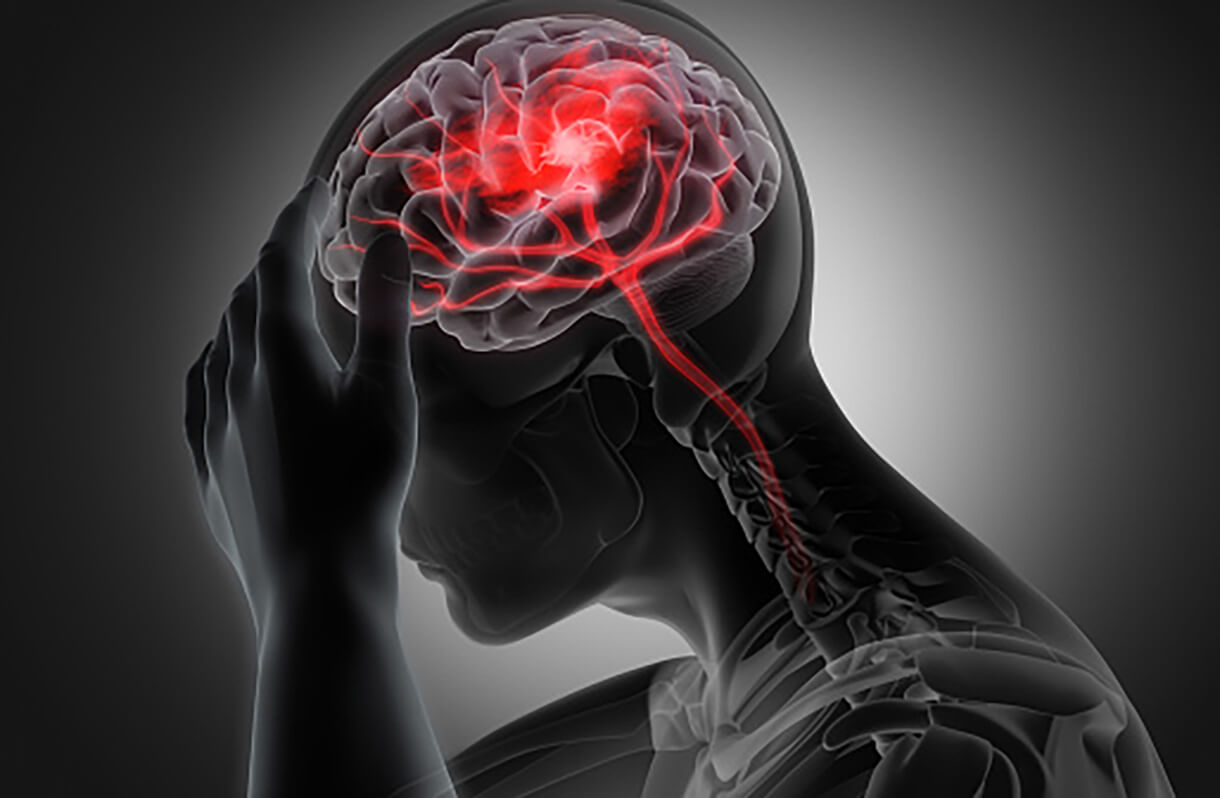Each time we buckle up and hit the road, we place an immense amount of trust in our vehicles, our skills, and the collective consciousness of fellow drivers. But even with advanced safety features and increased awareness, car accidents remain an unfortunate reality for many. Among the myriad of potential injuries one can sustain from a car accident, brain injuries stand out as particularly concerning. They’re not always visible, they can have life-altering consequences, and their symptoms can manifest in subtle yet insidious ways.
In this blog, we’ll explore the nature of brain injuries resulting from car accidents, the science behind the trauma, and the long-term implications for victims. Whether you’re a curious reader, someone who’s experienced a traumatic event, or a loved one seeking understanding, this guide aims to shed light on the complexities of the human brain under duress.
Types of Brain Injuries from Car Accidents
One of the most common and underdiagnosed injuries from a car accident is brain trauma. These injuries are often hard to detect, and it takes experienced doctors to diagnose and treat these injuries. Trauma is the most important determining factor in all brain injuries, causing the majority of all cases. Many of these injuries are from direct, blunt trauma to the head, which can occur from airbag deployment, striking the head restraint, striking the window, colliding with other vehicle occupants, or striking any other parts of the vehicle.
The rapid acceleration of the head can cause a concussion or a traumatic brain injury. In today’s medical environment, we use the terms traumatic brain injury (TBI), mild traumatic brain injury (mTBI), and post-concussion syndrome (PCS). The methodology of injury has been debated through the literature, and it has now been theorized that brain injury is more of a process than just an event. Not all brain injuries are detected on advanced imaging, but that doesn’t mean that tissues haven’t been damaged. It indicates that our testing parameters aren’t yet sensitive enough to detect all of these injuries.
Diffuse axonal injury occurs during a whiplash trauma, indicating that neurons in the brain have become damaged from the sheer force of the collision. The tissues become further damaged by vascular shunting, an increase in intracranial pressure, vascular perfusion, free radicals, micro-hemorrhaging, and the release of excitatory neurotransmitters. This can lead to temporary deficits, permanent impairments, and neurologic damage.
Traumatic Brain Injury Symptoms
The most common diagnosis given to brain trauma is a concussion. Concussions are graded as follows: mild (grade 1), moderate (grade 2), and severe (grade 3). Several variables are identified, such as loss of consciousness, transient mental confusion, and post-concussive symptoms. Post-concussion symptoms vary from person to person, but some symptoms can last anywhere from days to several years:
- Light Headaches
- Vertigo/Dizziness
- Neck Pain
- Headache
- Photophobia- Sensitivity to Light
- Phonophobia- Sensitivity to Sound
- Tinnitus- Ringing in the Ears
- Impaired Memory
- Easy Distractibility
- Impaired Comprehension
- Forgetfulness
- Impaired Logical Thought
Some brain injuries are immediately noticeable, while others take time to manifest and develop. It takes a skilled clinician to address these issues and properly document and treat them.
Traumatic brain injuries after car accidents can have serious health implications that can last a long time. Cognitive issues are very concerning for the individual as well as for close family members and friends. They will be able to see the decline in mental capacity firsthand, usually before the affected individual realizes it. Brain injuries affect your job, your relationships, and your overall ability to function at a high level. These are life-altering conditions and need to be treated as such. Not all doctors are created equal in their ability to diagnose, treat, and document your injuries. It is your doctors’ duty to be able to prove the extent of your injuries, and this includes all brain injuries, whether it be a TBI, mTBI, or PCS.
How to Diagnose Brain Injuries
Diagnosing brain injuries involves a combination of clinical assessment and imaging techniques. The specific approach might vary depending on the severity of the injury, the symptoms presented, and the circumstances leading to the injury. Here’s an overview of how brain injuries are typically diagnosed:
Immediate Assessment:
Glasgow Coma Scale (GCS): This is a 15-point test that assesses a person’s motor, verbal, and eye-opening reactions to stimuli. A score of 13 and higher indicates a mild TBI, 9 to 12 is moderate, and 8 or below is severe.
Imaging Tests:
Computed Tomography (CT) Scan: This is often the first imaging test performed on people with suspected brain injuries. It can quickly visualize fractures and detect bleeding, tumors, structural abnormalities, and evidence of prior strokes.
Magnetic Resonance Imaging (MRI): MRI is used for a more detailed view and can detect changes in the brain or brain atrophy after the acute phase of an injury.
Functional MRI (fMRI): This assesses brain activity by measuring changes in blood flow. It can sometimes be used to determine how brain areas are functioning after a brain injury.
Diffusion Tensor Imaging (DTI): A form of MRI that tracks the movement of water molecules in the white matter tracts of the brain. This can detect damage to these tracts, which might not be visible on standard MRI or CT scans.
Other Tests:
Neuropsychological Tests: These assess memory, problem-solving, attention, and other cognitive abilities. They provide an in-depth assessment of the injury’s impact on a person’s ability to think and function normally.
Intracranial Pressure Monitor: Sometimes, a probe is inserted into the skull to monitor the pressure inside if there’s concern about brain swelling.
Additional Considerations:
Mild traumatic brain injuries (concussions) may not show abnormalities on standard imaging tests. In such cases, the diagnosis largely depends on the clinical symptoms and history of the injury.
It’s also worth noting that some symptoms of brain injuries might not appear until days or weeks after the injury. This makes consistent monitoring and follow-up crucial.
It’s essential to seek medical attention after any head trauma, even if symptoms seem minor at first. The brain’s complexity means that seemingly subtle injuries can have significant consequences, and early intervention can improve outcomes.
How Chiropractic Care Can Treat Brain Injuries
When it comes to traumatic brain injuries (TBIs) specifically, chiropractors do not treat the injury to the brain directly. However, there are ways in which chiropractic care might complement the overall treatment and rehabilitation process for someone recovering from a TBI.
Accidents that cause TBIs often result in whiplash or other cervical spine injuries. Chiropractors can treat these associated injuries, which might help reduce headaches and neck pain commonly seen after head trauma. In addition, a chiropractic care clinic with massage therapy services can perform soft tissue therapy techniques like massage, stretches, or other soft tissue treatments. These treatments can help manage muscle tension and pain that can accompany TBI or its related injuries. Some chiropractors have training in vestibular rehabilitation, which can be beneficial for patients experiencing balance issues or dizziness post-TBI.
Some patients with mild TBIs (like concussions) develop lingering symptoms like headaches, dizziness, and neck pain. Chiropractic adjustments and therapies can potentially help alleviate some of these symptoms. Vestibular rehabilitation may benefit patients dealing with balance or dizziness issues. While vestibular rehabilitation is not offered by every chiropractor, Denver Integrated Spine Center does offer it.
Denver Integrated Spine Center — Traumatic Brain Injury Treatment
Traumatic brain injuries are serious, potentially life-threatening injuries that should not be ignored. If you hit your head during a car accident, you should seek a diagnosis immediately. Brain injury symptoms can often appear days later, which is why it’s important to seek immediate help. While chiropractic care cannot explicitly treat a brain injury, it may offer additional benefits that complement your brain injury treatments. Spinal manipulation and soft tissue treatments can help you get rid of headaches or muscle tension associated with these injuries.
If you have been involved in any motor vehicle collisions or feel that your injuries were misdiagnosed or not diagnosed at all, please give us a call for a free consultation at 303-758-9000 to get proper car accident care.

